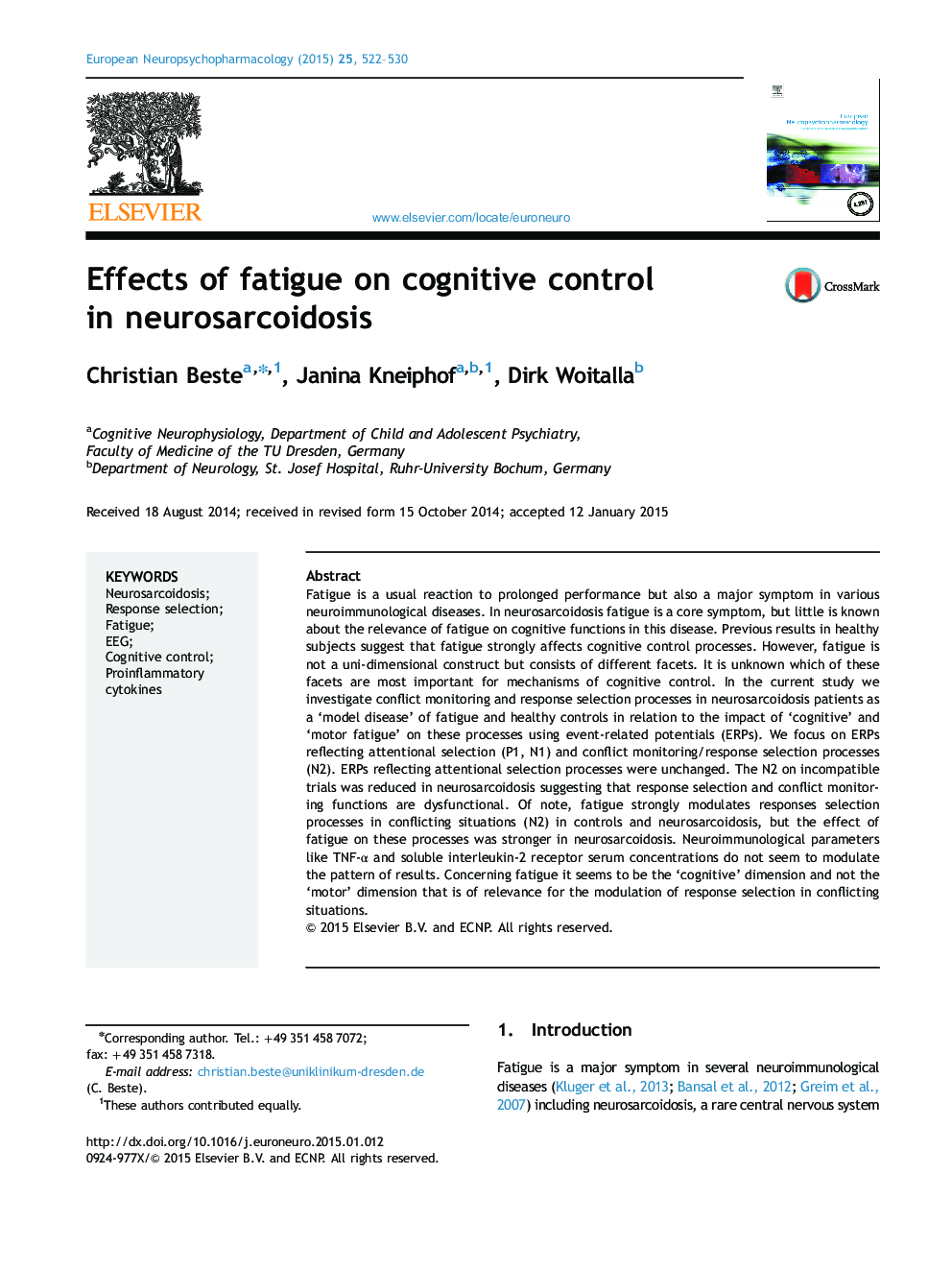| Article ID | Journal | Published Year | Pages | File Type |
|---|---|---|---|---|
| 10298872 | European Neuropsychopharmacology | 2015 | 9 Pages |
Abstract
Fatigue is a usual reaction to prolonged performance but also a major symptom in various neuroimmunological diseases. In neurosarcoidosis fatigue is a core symptom, but little is known about the relevance of fatigue on cognitive functions in this disease. Previous results in healthy subjects suggest that fatigue strongly affects cognitive control processes. However, fatigue is not a uni-dimensional construct but consists of different facets. It is unknown which of these facets are most important for mechanisms of cognitive control. In the current study we investigate conflict monitoring and response selection processes in neurosarcoidosis patients as a 'model disease' of fatigue and healthy controls in relation to the impact of 'cognitive' and 'motor fatigue' on these processes using event-related potentials (ERPs). We focus on ERPs reflecting attentional selection (P1, N1) and conflict monitoring/response selection processes (N2). ERPs reflecting attentional selection processes were unchanged. The N2 on incompatible trials was reduced in neurosarcoidosis suggesting that response selection and conflict monitoring functions are dysfunctional. Of note, fatigue strongly modulates responses selection processes in conflicting situations (N2) in controls and neurosarcoidosis, but the effect of fatigue on these processes was stronger in neurosarcoidosis. Neuroimmunological parameters like TNF-α and soluble interleukin-2 receptor serum concentrations do not seem to modulate the pattern of results. Concerning fatigue it seems to be the 'cognitive' dimension and not the 'motor' dimension that is of relevance for the modulation of response selection in conflicting situations.
Related Topics
Life Sciences
Neuroscience
Biological Psychiatry
Authors
Christian Beste, Janina Kneiphof, Dirk Woitalla,
